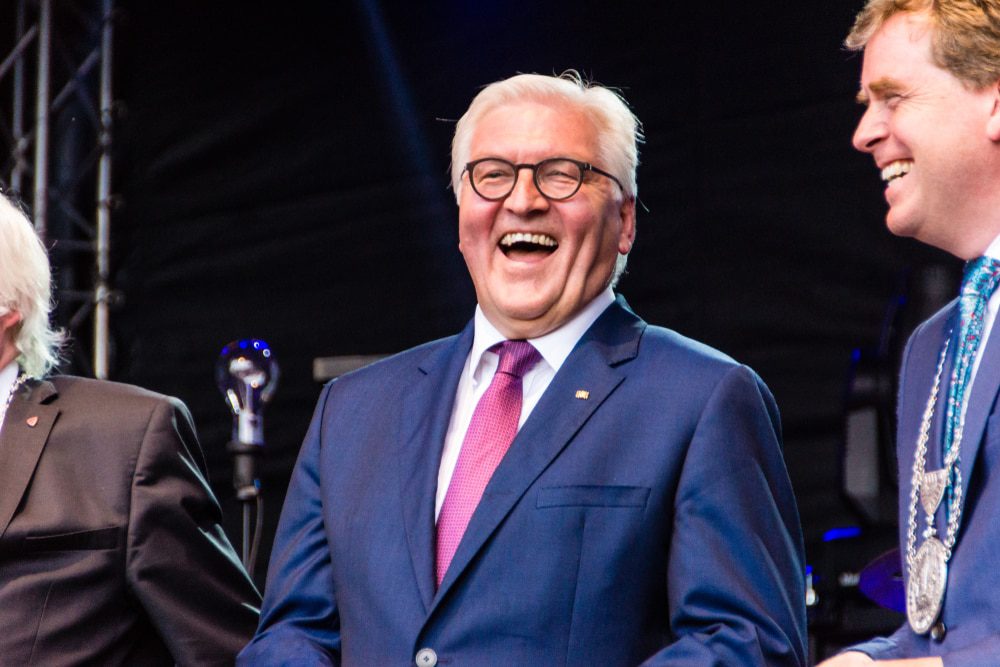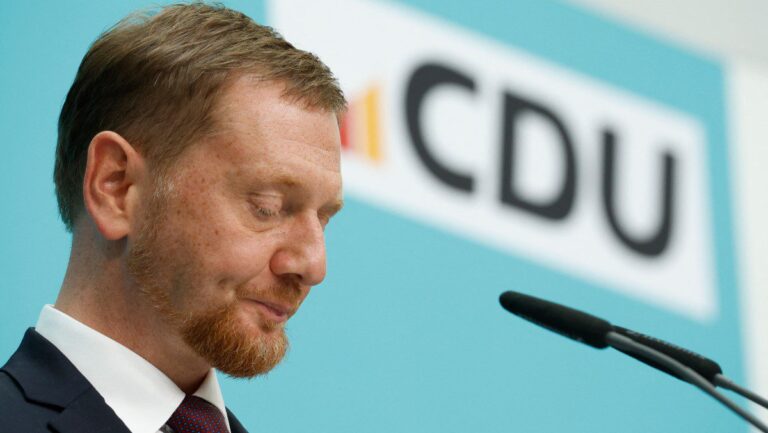On Sunday, 12 February 2022, Germany will elect a new president of the Federal Republic. The current president and former minister of three cabinets, Frank-Walter Steinmeier of the Social-Democratic Party (SPD), is eligible for reelection and had announced on May 21st of last year his candidacy for a second 5-year term. He is officially supported by all three parties making up the current German government, his own SPD, the Green Party, and the Liberal-Democratic Party (FDP). As we covered earlier this year, the Christian-Democratic Party (CDU) had also announced to support Steinmeier’s candidacy for reelection, leaving him as the heavy favorite.
Steinmeier will be challenged by three other candidates on Sunday, most notably by the economist, professor, and author Max Otte. Otte has been a member of the CDU since 1991 and has led the conservative “WerteUnion” wing within the party since May 2021. He was nominated recently by the right-wing opposition party Alternative für Deutschland (AfD), which in turn led to the CDU distancing itself from Otte and suspending his party membership. The then-CDU General Secretary Paul Ziemiak expressed worry that Otte’s support from the AfD would “seriously damage” the conservative party and thus required “immediate intervention.” Ziemiak considered Otte’s acceptance of the nomination a “breach of loyalty” and concluded that “whoever even considers a nomination … by the AfD, is violating the values of the CDU and has no place in our party.”
Wir fordern Herrn Dr. #Otte auf, die CDU sofort zu verlassen!
— Paul Ziemiak (@PaulZiemiak) January 25, 2022
Wer als Christdemokrat überhaupt erwägt, von der #noafd für das Amt des Bundespräsidenten nominiert zu werden, verletzt die Werte der @CDU und hat in unserer Partei nichts verloren.
Former candidate for Chancellor of the CDU, Armin Laschet, supported Ziemiak’s sentiment almost word for word, adding that such a nomination is “not an honor, but a disgrace.”
Another challenger to Steinmeier is the nominee of the left-wing party Linke, Gerhard Trabert, a professor of social medicine and psychiatry. While not a party member, he is recognized for “drawing attention to the poor and pointing out social injustice,” according to his own website. While receiving generally favorable reactions from the media, he recently received pushback after insinuating a similarity between current refugees and the persecution of Jews during the reign of the Nazis. Johannes Vogel of the FDP called the comparison “absolutely unacceptable,” “confused,” and “historically slipped away.”
The third candidate challenging Steinmeier is Stefanie Gebauer, a physician, nominated by the Free Voters (FW). She’s an active communal politician north of Berlin and considered to have only an outsider’s chance at the election.
The German president is elected by the Bundesversammlung (federal convention), consisting of all 736 members of parliament, as well as an equal number of state electors, elected proportionally to the size of the states by the state parliaments. These electors can be active and retired state politicians, accomplished individuals, and celebrities. The list of electors, for instance, includes retired Chancellor Angela Merkel, but also the head coach of the German national football team Hansi Flick, the rapper Lady Bitch Ray, and the drag queen Gloria Viagra. Germany’s most famous virologist Christian Drosten is included in the list of electors, as well as the co-founder of BioNTech, Özlem Türeci.
While the president of Germany serves a primarily representative function, Frank-Walter Steinmeier exhibits a history of shaping the political landscape by how he positions himself in public. Whether through his public endorsement of a music festival “against hate” in 2018 that featured the band “Feine Sahne Fischfilet,”—whose lyrics called for violence against the police and who had proven ties to Antifa—or more recently, his call to get vaccinated, in which he accused the unvaccinated of putting everybody in danger, Steinmeier is living proof that the president might not have a lot of nominal power in Germany but still holds an office designed to fashion public opinion, for better or worse.





